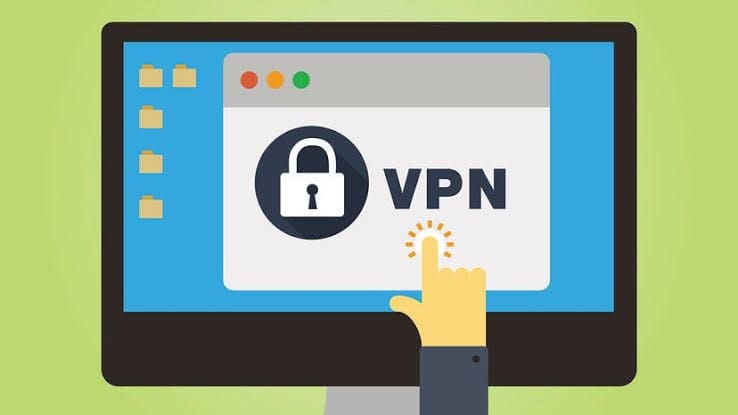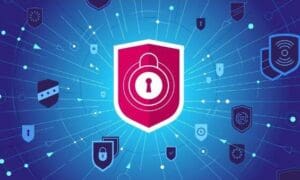Introduction
In the modern virtual age, privacy has become a prime difficulty for people around the world. With the growing range of cyber threats and online surveillance, safeguarding private data has turned out to be more important than ever. This article explores the idea of privacy in the digital age and the way Virtual Private Networks (thebestvpn) play a crucial role in protecting sensitive facts.
The Importance of Privacy in the Digital Age
Privacy is an essential right that each person must have, both offline and online. In the virtual age, our non-public records are constantly being accrued, stored, and analyzed by means of numerous entities, including governments, agencies, and hackers. These facts may be used for centered advertising, identification theft, or even surveillance.
Maintaining privacy online is vital for numerous reasons. Firstly, it protects our non-public and monetary information from falling into the wrong hands. Secondly, it lets us exercise our freedom of speech and express ourselves without worry of reprisal. Lastly, privacy fosters consideration in virtual systems and encourages individuals to use the net for numerous activities, including on-line banking, purchasing, and verbal exchange.
Understanding VPNs and Their Functionality
A Virtual Private Network, or VPN, is an era that offers a secure and private connection over a public community, which includes the net. When you connect to a VPN, it creates an encrypted tunnel between your tool and the VPN server. This tunnel encrypts all of the information that passes through it, making it inaccessible to 0.33 parties.
VPNs provide numerous key functions that enhance privacy and safety, including:
- Data Encryption: VPNs use strong encryption algorithms to protect your information from being intercepted or monitored by unauthorized parties.
- IP Address Masking: By connecting to a VPN server, your IP address is masked with the server’s IP address, making it hard for web sites or online offerings to track your online activities.
- Anonymity: VPNs will let you browse the net anonymously, as your online activities are associated with the VPN server’s IP address instead of your own.
- Secure Remote Access: VPNs enable stable, far-flung access to non-public networks, making them precious for groups and people operating remotely.
How VPNs Protect Your Personal Information
Privacy in the virtual age is a constant battle, but VPNs function as effective shields that guard your non-public statistics. Here’s how VPNs safeguard your statistics:
- Secure Data Transmission: When you use a VPN, all your net traffic is encrypted, making sure that your non-public facts remain private even if they’re intercepted with the aid of hackers or surveillance companies.
- Protection on Public Wi-Fi: Public Wi-Fi networks are frequently unsecured, making them at risk of hackers. VPNs encrypt your connection, stopping cybercriminals from intercepting your statistics, even when you use public Wi-Fi hotspots.
- Bypassing Geographical Restrictions: Some websites and online services are geographically confined. By connecting to a VPN server positioned in a unique location, you could skip those restrictions and access content that would otherwise be unavailable to you.
- Preventing Tracking and Profiling: ISPs and online advertisers frequently tune your online sports to create user profiles and supply-centered commercials. VPNs mask your IP address and encrypt your traffic, making it tough for them to track and profile you.
- Protection from Government Surveillance: In some countries, governments reveal and censor online activities. VPNs offer a layer of privacy by encrypting your information, making it more difficult for authorities and surveillance companies to monitor your online communications.
FAQs
Q: How does a VPN paintings?
A: When you connect to a VPN, it creates a secure and encrypted connection between your device and the VPN server. All your internet visitors are routed through this encrypted tunnel, ensuring the privacy and safety of your information.
Q: Can VPNs be traced?
A: While VPNs beautify privacy by encrypting your data and covering your IP address, it’s vital to pick out a reliable and straightforward VPN service. Some VPN companies may keep logs of your online activities, compromising your privacy. Look for VPNs that have strict no-logging coverage for maximum anonymity.
Q: Can I use a VPN on my cellular device?
A: Yes, VPNs are well matched with the maximum number of cellular gadgets, including smartphones and capsules. You can download VPN apps from respectable vendors and configure them to defend your privacy while using mobile devices or connecting to public Wi-Fi networks.
Q: Are loose VPNs safe to apply?
A: While loose VPNs may additionally seem appealing, they regularly come with limitations and dangers. Some free VPNs can also show advertisements, log your sports activities, or even sell your information to third parties. It’s typically recommended to choose a paid VPN provider that prioritizes privacy and security.
Q: Can VPNs slow down my net velocity?
A: It’s viable for a VPN to barely lessen your internet velocity due to the encryption and additional routing. However, with a good VPN provider and a quick internet connection, the effect on speed is generally minimal and slightly important.
Q: Are VPNs criminal?
A: The legality of VPNs varies from U.S. to U.S.A. While most international locations permit the use of VPNs for privacy and protection purposes, some restrict or ban their use. It’s vital to investigate and observe the legal guidelines and regulations concerning VPN utilization in your country.
Conclusion
Privacy in the digital age is a paramount difficulty, and VPNs function as crucial tools for protecting your non-public records from prying eyes. By encrypting your facts, protecting your IP address, and imparting secure connections, VPNs offer a layer of protection in an increasingly interconnected world.hether you’re browsing the internet, having access to sensitive records, or communicating with others, the use of a VPN guarantees your privacy and security are safeguarded.
Remember, the digital age needs proactive measures to protect your personal records. Embrace the power of VPNs and take control of your online privacy nowadays.































